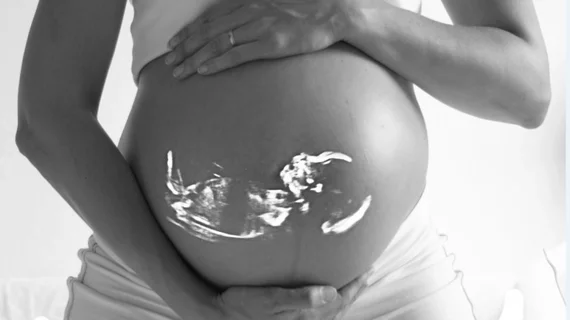Fetal MRI scans can be a valuable tool for detecting extracardiac anomalies (ECA) in fetuses diagnosed with congenital heart disease (CHD), according to a new study published in the Journal of the American College of Cardiology.
In the analysis, researchers evaluated 429 consecutive fetuses with CHD using an MRI scan. All cases occured from July 2003 to December 2019, and the MRI took place between 17 and 38 gestational weeks.
According to the authors, 56.6% of the fetuses showed signs of ECA on MRI, and 25.4% had structural brain anomalies (SBA).
Looking at the 191 fetuses with normal genetic testing results, the ECA rate was 54.5% and the SBA rate was 19.4%.
The authors found that the most predominant SBA were anomalies of hindbrain-midbrain (11% of all CHD), dorsal prosencephalon development (10%) and abnormal cerebrospinal fluid spaces (10.5%).
"Currently, fetal MRI is not universally used for prenatal assessment of fetuses with cardiac defects," lead author Gregor O. Dovjak, MD, PhD, a specialist at Medical University of Vienna, said in a prepared statement. "However, our results suggest that fetal MRI is a useful complement to ultrasound."
Dovjak et al. noted that one strength of fetal MRI is that it helps with imaging "the high soft-tissue contrast and the depiction of brain anomalies," which can be a challenge when relying on ultrasound exams.
“Because overall outcome in CHD strongly depends on the presence and severity of additional anomalies, such as SBA and renal anomalies, accurate prenatal diagnosis using fetal imaging modalities is essential in all types of CHD," the group wrote.
Read the full study here.
